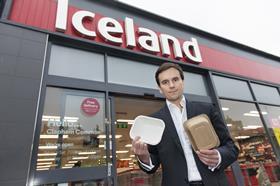
As Brits try to cut down on plastic, eight in ten consumers are watching out for plastic packaging on fresh fruit and veg when they shop, it has been revealed.
Fresh produce emerged as the most common product category in which consumers are actively trying to reduce the purchase of single-use plastics (at 81 per cent), followed by household and cleaning products (36 per cent), homeware (32 per cent), personal care products like shampoo or toothpaste (27 per cent), and cosmetics and skin care (18 per cent).
The YouGov survey showed that 82 per cent are actively trying to reduce the amount of plastic they throw away overall, while almost half (46 per cent) feel guilty about the amount of plastic they use.
Significantly, the survey also showed that half of Brits would pay more for eco-friendly packaging.Given the choice of eco-friendly packaging at a higher price, or standard packaging at the normal price, more consumers said they would opt for the eco-friendly option (50 per cent vs 33 per cent).
Meanwhile, two thirds (69 per cent) think all companies should be required by law to use eco-friendly packaging, even if it means prices going up. This rises to 89 per cent among those who feel guilty about the amount of plastic waste they produce.
Half (51 per cent) would pay an additional £2 or more on a grocery shop of £100 if all of the packaging used was eco-friendly and did not include any single-use plastics. And 33 per cent would pay £3 or more, while 27 per cent would pay £5 or more. But one in five (18 per cent) wouldn’t be willing to pay more at all.
The data also shows that themajority support top-down policies such as a bottle deposit scheme(80 per cent)or extending the plastic bag charge to all retailers (71 per cent). Currently, only retailers with more than 250 staff are part of the scheme.
Even among those who say they do not feel guilty about the amount of plastic they use, two-thirds (65 per cent) say they would be likely to use a bottle deposit scheme.



